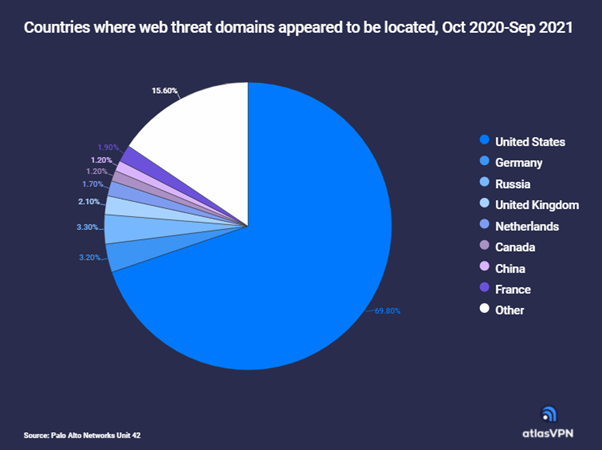Secret mining: The top three countries at risk of malicious links are the United States, Germany and Russia, according to Atlas VPN.
Atlas VPN specialists recorded 177,753 malicious mining addresses from October 2020 to September 2021. This was reported on the company’s blog.
In addition, nearly 70% of all detected malicious URLs target the US market. Germany and Russia were also among the top three countries targeted by attackers.

Secret mining steals resources
In total, during the above period, Atlas VPN identified about 831,000 malicious addresses. As experts note, hidden web-miners consume significant resources of central processors, which significantly affects the operation of the computer. Atlas VPN noted that cybercriminals make money by secretly mining cryptocurrency on victims’ devices.
Earlier, the editors reported that users of Norton 360 antivirus accused developers of unauthorized mining of cryptocurrencies on their devices. It turned out that often the antivirus software mines cryptocurrencies without any permission from users. In addition, it is extremely difficult to get rid of them.
The developers position the built-in miner as a passive income for users. However, in fact, the cryptocurrency is stored in the wallets of the company itself, and the withdrawal fee is 15%.
At the same time, Google Cloud users have also been hit by hidden miners. According to Google Cybersecurity Action Team analysts, almost 90% of Google Cloud account hacks are aimed at hidden mining of cryptocurrencies. Attackers use cloud infrastructure to mine various cryptocurrencies, including “green bitcoin” – Chia (XCH).
In other news, Youtuber Siraj Raval claims to have been able to mine $800 per month in ether (ETH) cryptocurrency using Tesla Model 3. However, other Tesla enthusiasts questioned the accuracy of Raval’s claims. Miner Thomas Somers said in an interview with CNBC that the numbers the YouTuber claimed are simply not true.
 beincrypto.com
beincrypto.com